Unprecedented measures imposed by Central Bank in 2022
The near-term economic stabilisation measures implemented thus far (2022) by the Central Bank are unprecedented.
“The sacrifice made by individuals and businesses during these difficult times would be meaningful only when economic stability is restored over the medium to long term. Towards that end, collective and coordinated efforts are needed from all corners of society to ensure that the economy makes a sustainable recovery,” the banking regulator said in a statement discussing the developments for 2020 and the future in 2023
The Central Bank will also start publishing a forward-looking Monetary Policy Report to better inform the public on the outlook of the economy, thereby further improving the transparency of monetary policy actions.
It said Sri Lanka encountered the most challenging year in 2022 in the post-independence economy. Headwinds due to consecutive economic shocks in recent years, including the Easter Sunday attacks in 2019, the outbreak of COVID-19 in 2020, and its protracted impact on activity in the aftermath in 2021, the socio-economic and political crisis in 2022 amidst catastrophic balance of payments (BOP) pressures, along with unprecedented policy tradeoffs, have severely affected economic activity, inflicting unimaginable hardships to individuals and businesses. Livelihoods were lost, while real incomes suffered the most.
Structural economic impediments that existed across various spheres of the economy over decades were compounded by these economic shocks, along with ill-timed policy choices, thereby loosening the macroeconomic balance and resulting in a sudden and multipronged setback for the nation.
The Government and the Central Bank were compelled to implement painful, but unavoidable policy measures during 2022 aimed at restoring macroeconomic balance, the statement said.
Foreign exchange outflows were further contained by several other measures, including the prioritisation of imports. These measures ensured the availability of foreign exchange for essential imports, including fuel, coal, cooking gas, medicine, and food items, among others, thereby relieving socioeconomic unrest to a greater extent. Measures were initiated to improve foreign exchange liquidity in the domestic foreign exchange market with the repatriation and conversion requirements of foreign exchange, thereby disincentivising activity in the grey market.
Further, the Government has embarked on long-overdue reforms to rectify structural deficiencies in fiscal operations, as well as other sectors of the economy, that are imperative in ensuring a sustained recovery of the economy.
Inflation and economic growth
The rapid acceleration of inflation that began from early 2022, turned around in October 2022, supported by the tight monetary policy measures implemented to contain inflationary pressures, the fiscal consolidation efforts and supply side policies of the Government, along with the relative easing of price pressures globally, among others.
Headline inflation is expected to move along a disinflationary path with a deceleration in the first half of 2023 and reaching the desired levels of inflation towards the end of 2023. If any upside risks to inflation emerge in the period ahead that would be addressed through appropriate policy measures.
The Sri Lankan economy, which is projected to register a real contraction of around 8 per cent in 2022, is expected to record a gradual recovery from the second half of 2023 and sustain the growth momentum beyond
Monetary policy and interest rates
The monetary policy will remain focused on ensuring price stability over the medium term. The forthcoming Central Banking Act, of which the draft has already been approved by the Cabinet of Ministers, will further strengthen the independence and accountability of the Central Bank, thereby reinforcing its core objective of ensuring price stability within the flexible inflation targeting (FIT) framework.
The excessively high levels of interest rates observed at present are expected to moderate in the period ahead as money market liquidity conditions improve and the risk premia attached to debt restructuring concerns assuage.
As guided by the near-term inflation outlook, market interest rates could adjust downward, yet maintain reasonably tight monetary conditions until inflationary pressures are sufficiently contained.
“The Central Bank has already requested the banking and non-banking sector institutions to avoid unhealthy competition for raising deposits by offering high rates of interest, which has led to excessive adjustments in all market interest rates, including the lending rates, well above the adjustment of policy interest rates. The market interest rate structure (of both deposit and lending interest rates) is expected to moderate in the period ahead with improving market liquidity conditions. If such adjustment would take longer time than anticipated, the Central Bank will consider taking administrative measures, as appropriate,” the statement said.
The demand management measures imposed on curtailing certain imports will be assessed vis-à-vis the foreign exchange liquidity and monetary conditions.
An efficient implementation of the identified near-term stabilisation measures and the medium to long term structural reforms both by the Central Bank and the Government is vital to position Sri Lanka on a fast track to recovery on a sustained basis, the statement said.
“Nevertheless, formulating macroeconomic policies and recovery strategies during a crisis is fraught with enormous uncertainties. This requires timely adjustments to policies and strategies as new information becomes available. The Central Bank will remain committed to achieving its mandate through appropriate policy measures while closely observing developments to take corrective policy and regulatory measures. The Central Bank appreciates the unwavering support, cooperation, and sacrifice of the financial sector participants, the business community, and the public at this crucial moment of Sri Lanka’s socioeconomic history, and reiterates the need for steadfast commitment to remaining in focus until the crisis is overcome through collective efforts,” it said.
-
Still No Comments Posted.




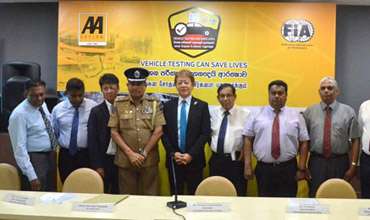
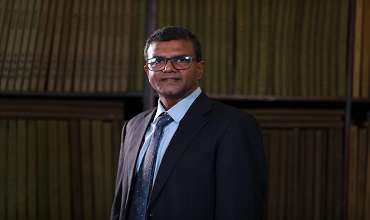


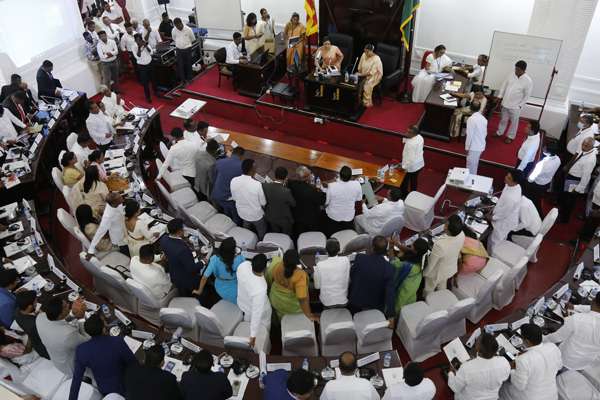
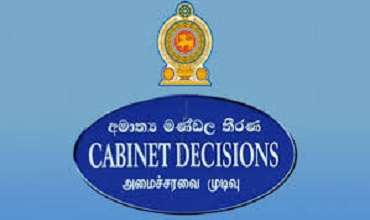

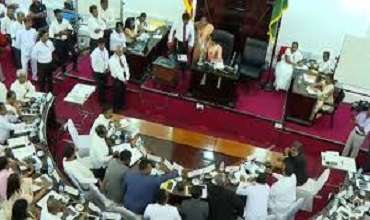

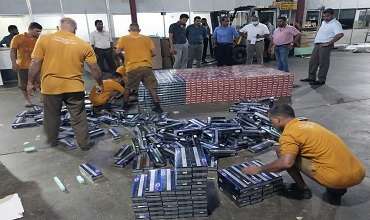
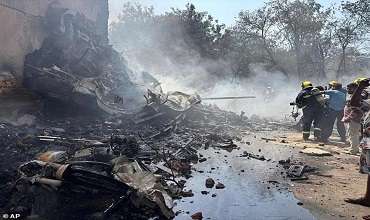
Leave Comments